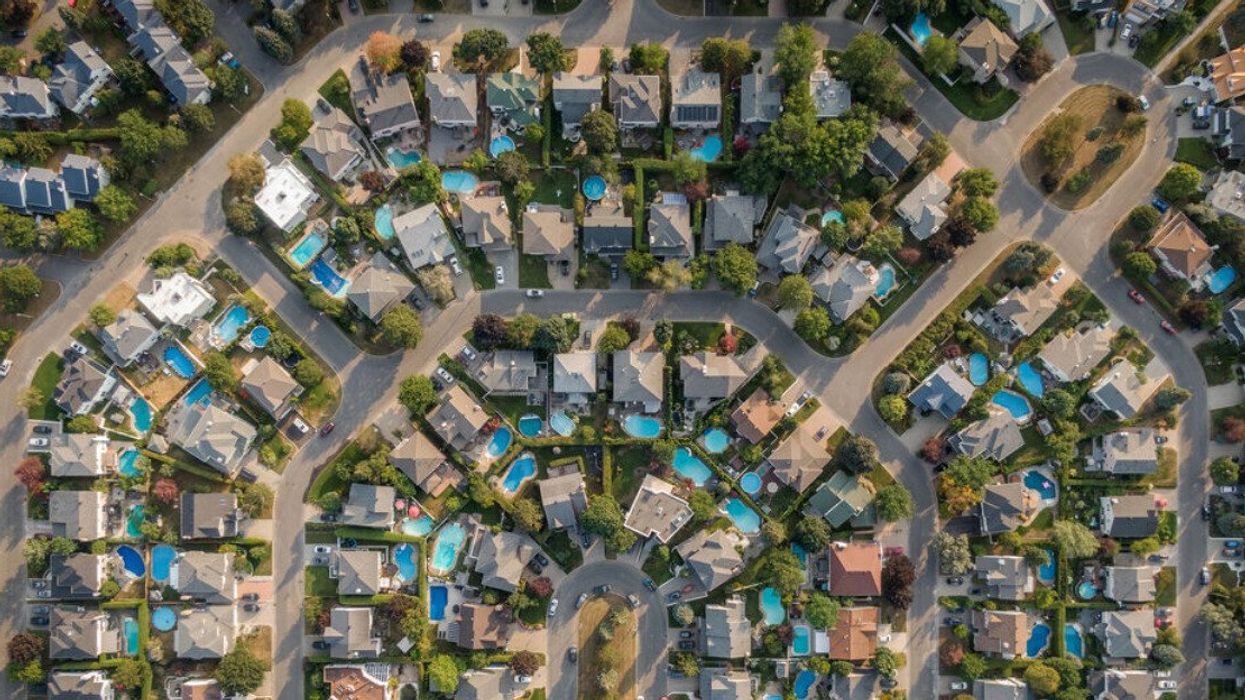Rent in Quebec is rising — here's how cities compare (and where you can still find deals)
To lease or to leave, that is the question.

A residential neighbourhood in Montreal.
If you're thinking about moving, upgrading, or just curious about where your city stacks up in the rental rat race, the latest figures could sway where you want to sign your next lease. Rent in Quebec is all over the map this spring, from surprising spikes in Gatineau to the more predictable pains of Montreal's market.
According to the National Rent Report by Rentals.ca and Urbanation, Canadian rents have seen an 8.8% increase, with the average rent reaching $2,181 as of March 2024. That's a step down from the feverish 10.5% increase seen in February, and a minor relief of 0.6% month-over-month, attributed to seasonal adjustments and a cooling demand in Canada’s priciest cities.
"As population growth slows with caps on non-permanent residents and supply increases as rental completions continue to rise, rent growth should continue to moderate towards more sustainable levels," said Shaun Hildebrand, President of Urbanation.
While not experiencing the dramatic spikes of Alberta or the high baseline of Vancouver, the rental market in Quebec is showing a pattern of regional variability.
In the ranking of rental affordability among 35 Canadian cities, Gatineau is 21st, with higher numbers indicating more affordable rents. The average rent for a one-bedroom apartment in the city stands at $1,762, reflecting a modest year-over-year increase of 0.9% but a slight monthly decrease of 1%. Two-bedroom units have climbed to an average of $2,222, up 18.3% compared to last year. The city might appeal to those looking for relatively stable rent costs but could deter those cautious of potential price hikes.
Montreal, finishing 22nd, shows a steady climb in rental costs. One-bedroom apartments average $1,747, up 7.9% over the past year, with a nominal 0.2% increase month-over-month. Two-bedrooms have escalated more sharply to $2,327, marking an 8% annual increase. Montreal's consistent growth pattern suggests a competitive market likely fueled by its urban appeal and economic opportunities, which could be challenging for renters looking for budget-friendly options.
Laval is positioned 26th, with more moderate fluctuations. The city saw a decrease in one-bedroom rents by 1.2% month-over-month to $1,596, though year-over-year growth remains at 3.4%. Two-bedrooms increased to $2,023 monthly, a slight 0.8% rise from last year. Laval represents a more tempered market, potentially suitable for renters seeking less volatility.
If you're looking for deals, Quebec City appears more affordable but is not without its increases. One-bedrooms dropped 1.3% from the previous month to $1,288 but have risen 5.8% over the year. Two-bedrooms saw a more significant jump of 16.6% year-over-year, reaching $1,750. The city ranks 32 on the list and its slower month-over-month changes might attract those looking for value but wary of future escalations.
In smaller markets, Pointe-Claire in Quebec recorded the highest increases in rent over the past year, at 31%. Rents for shared accommodations have also risen, staying above $1,000 for four months straight, pointing to a climb in demand for more economical housing options.
Quebec's rental market shows a mix of stable and sharply increasing prices, depending on the city. That variability means that while some areas might offer relatively stable costs now, the general trend across the province points towards higher living costs.
- 6 Quebec cities where house prices are going up the most ›
- These 3 Myths About Montreal's Housing Crisis Could Be Making It Worse — Have You Fallen For Them? ›
- Montreal's Average Rent Is Creeping Towards $2K In Several Areas — Here's Where It's Cheapest ›
- Montreal is hosting a career fair this week with over 15,000 jobs to apply for - MTL Blog ›
- Quebec's minimum wage goes up in May but still isn't enough to live on, a new study finds - MTL Blog ›
- 4 Quebec cities were named among the most affordable in Canada — Here's who beat Montreal - MTL Blog ›
- Canada's cheapest city for renters is a charming riverside community near Montreal - MTL Blog ›
